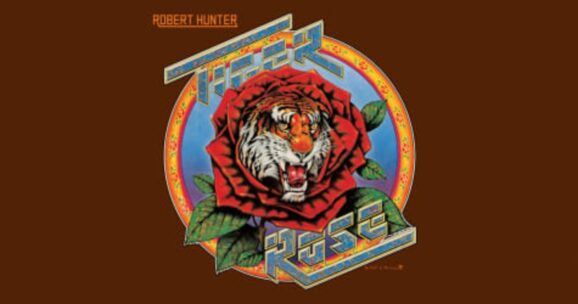 Jerry Garcia would chuckle to think of a multi-day event hosted by a major American university designed to dissect Grateful Dead culture and history. No doubt too as the weekend long series of events progressed, he would become more than bemused by the proceedings.
Jerry Garcia would chuckle to think of a multi-day event hosted by a major American university designed to dissect Grateful Dead culture and history. No doubt too as the weekend long series of events progressed, he would become more than bemused by the proceedings.
Unbroken Chain at UMass Amherst was as efficiently organized as it could be. The only obvious delay occurred in a wait for former basketball star Bill Walton to show up to tell stories about the Grateful Dead expedition to Egypt and taking his Boston Celtics teammates to see the band. Snafus behind the scenes—archivists were overheard to have had some technical difficulties!—would seem to have had no negative effect, except perhaps in the long run should the event become a regular occurrence.
Judging from this year’s inaugural run, it should be an annual event. Wisely located in the campus center at the heart of UMass Amherst, an attendee could stay in the hotel at the facility two floors above most of the events and a five minute walk across campus from the location of the concerts; Friday night The American Beauty Project led by former Dylan and current Phil Lesh guitarist Larry Campbell, reminded us what great material comprised Workingman’s Dead and American Beauty, as well as the charm the band itself brought to those songs.
The most provocative and enlightening portions of the three-day Unbroken Chain program arose from the most focused topics. Dan Healy and Bob Braloves’s discussion of live sound engineering might stand as a metaphor for the Dead ethos: deceptively structured, rife with detail, all arising from the desire to provide the best possible sound for both band and audience. It was a free spirited conversation.
As was, not surprisingly, a discussion of Dead lyrics, most of which logically focused on the verbal and philosophical gifts of Robert Hunter. To have a self-admitted 20 year old admit to not know much of the topics(s) at hand but nevertheless having her curiosity piqued is testament to the resonance of his work. David Gans (of “Grateful Dead Hour” radio fame and editor of “Conversations with the Dead”) chaired a similar panel discussion on rock criticism, which, again not unpredictably, bogged down in near argument about the extent to which Garcia’s demons affected the group and its overall enterprise in later years.
Just as Unbroken Chain’s attendees mirrored the audience at a Grateful Dead show—some tie-dyed, some not, some comfortable in their devotion and some defensive–so did the symposium develop a rhythm of its own as well as something of an improvisational air. In the time devoted to the band’s archival process, for instance, structure broke down as David Lemieux’ presentation turned into something of a press conference.
The commencement of the symposium found Rebecca Adams, who took a college class of hers on Dead tour in 1989, display the outline of her carefully-researched book on the band’s community; as with PowerPoint’s later on covering merchandising, business operations and the band’s very improvisational techniques (the scientific dissection of which lost the magic of the music itself despite those PhD’s passion), the mystique of scholarship and academia at large came into question: some phenomena don’t fit neatly into a category.
The presence of Dead historian/publicist Dennis McNally provided an element of continuity in ways both large and small. The man’s whimsy reaffirmed his erudite demeanor, as his keynote speech and contributions to various panels maintained a sense of proportion, not mention an implicit recognition of the legitimacy of this event and the Grateful Dead experience itself.
Likewise, just as the most influential of rock and roll bands approached the world from their own unique perspective so did Unbroken Chain use the Grateful Dead as a prism to perceive society from new angles. There might’ve been few epiphanies during the course of the weekend, but the overall effect was to become further enlightened, not just about the Grateful Dead and their unconventional inclusive philosophy, but the larger evolutionary process of music, culture and memory.












